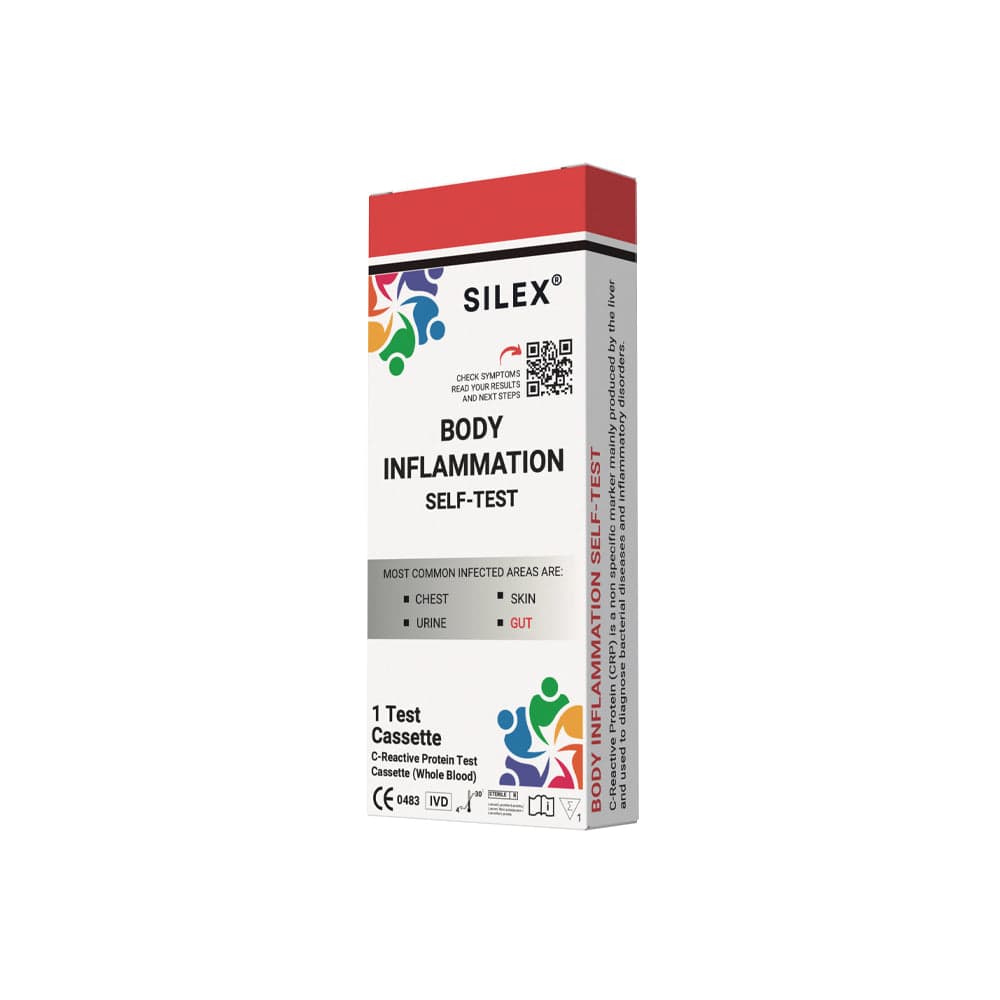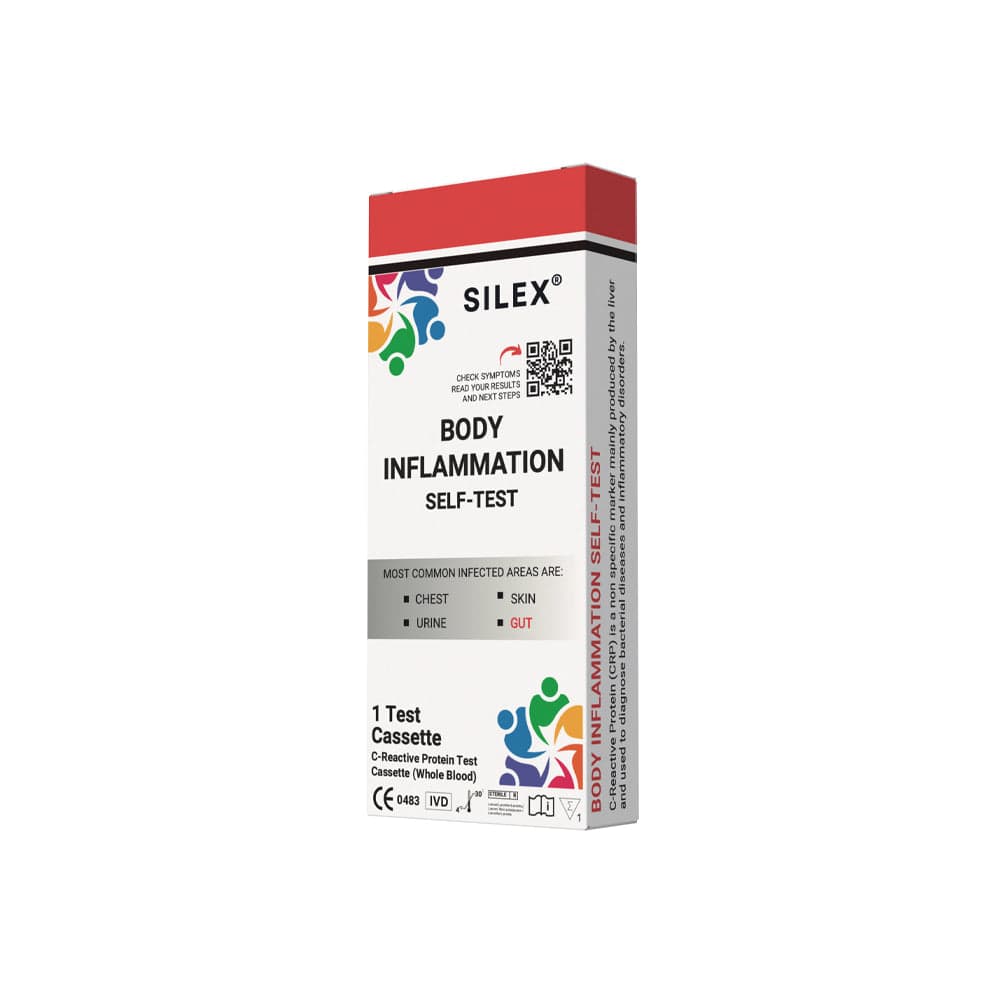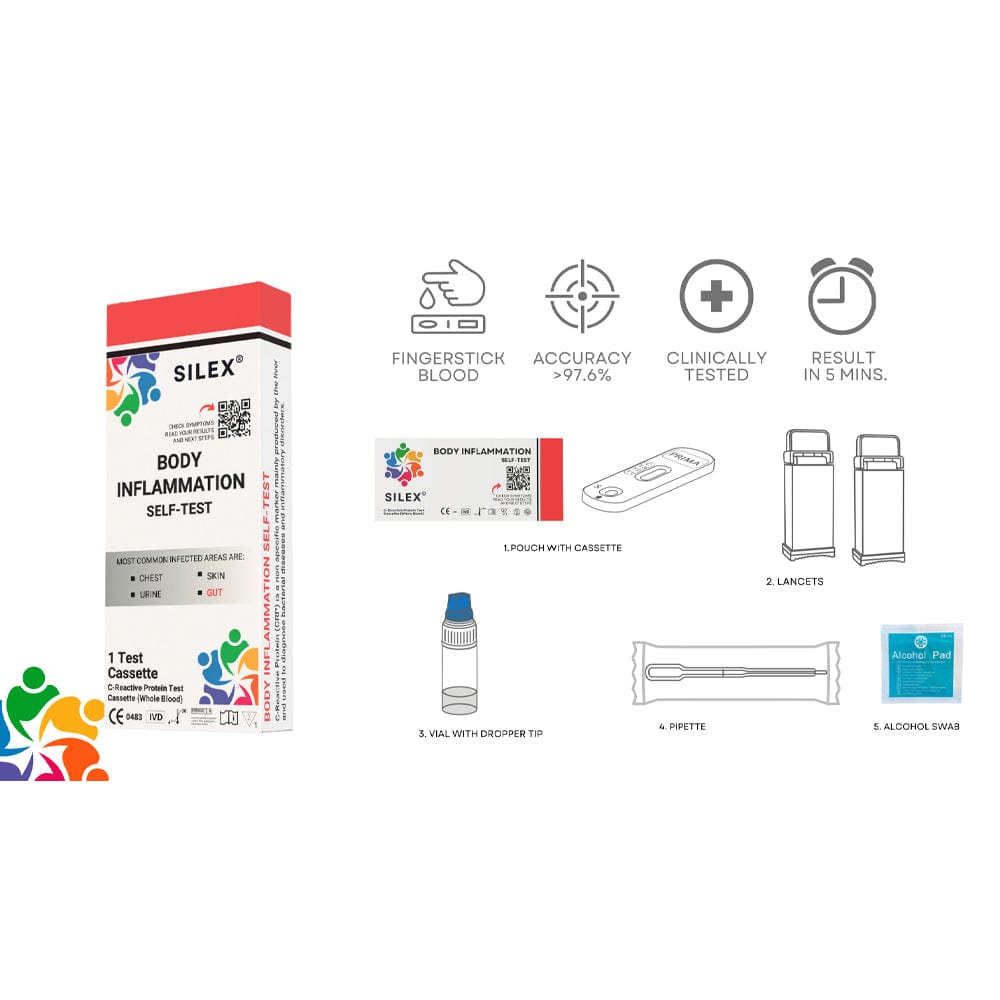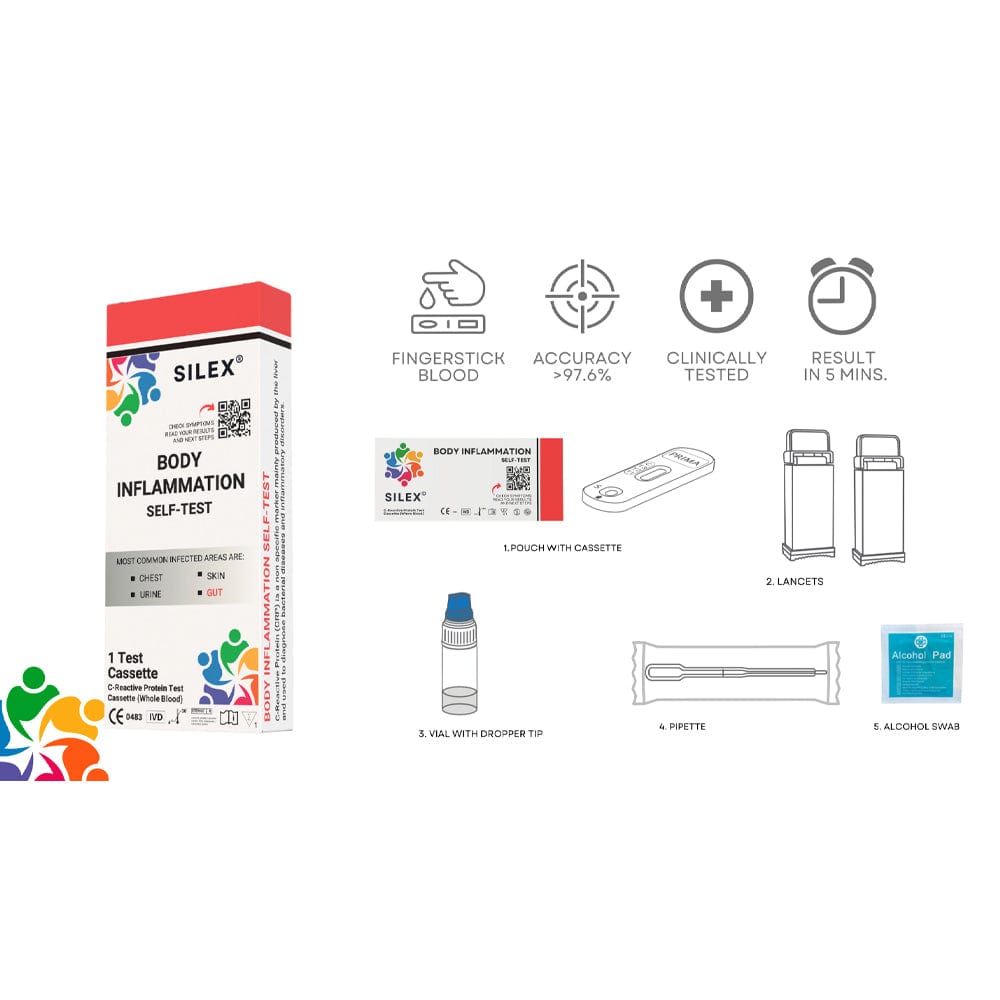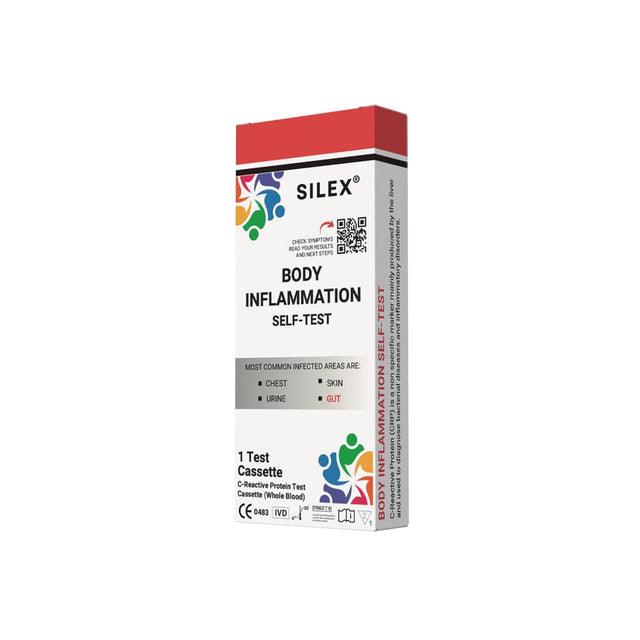Silex Body Inflammation Self-Test
Silex Body Inflammation Self-Test is backordered and will ship as soon as it is back in stock.
Couldn't load pickup availability
Description
Description
What is CRP?
CRP stands for C-reactive protein, a substance made by your liver. Your body releases CRP into your blood as a natural response to inflammation. Inflammation happens when your body is fighting an infection, illness, or healing from an injury. It’s your body’s way of protecting itself and starting the healing process.
Sometimes, inflammation is short-term and helpful, but if it lasts too long, it can harm your body.
A CRP test measures the amount of this protein in your blood to check if there’s inflammation in your body. However, it doesn’t tell us the exact cause of the inflammation.
Why should I get tested?
The CRP test is most often recommended if you have symptoms of an infection. These symptoms might include fever, chills, rapid breathing, muscle aches, or vomiting. You might also notice symptoms specific to the part of your body that’s affected, such as issues with your chest, urine, skin, or gut. These are the most common areas where infections occur.
The test can also be helpful if you suspect you have a chronic condition like rheumatoid arthritis or lupus.
Additionally, CRP levels can be used to monitor how well a condition is responding to treatment. If the treatment is working, CRP levels should go down over time.
What should I do if I have a high CRP?
A high CRP result isn’t a diagnosis—it is a sign of inflammation in your body. Infections are the most common cause, but it is important to talk to your doctor so they can figure out what’s causing it. Your doctor might:Ask about your symptoms and medical history.
Order more tests, like blood tests or scans.
Provide treatment, such as antibiotics, if needed.
The next steps will depend on what they find, so it is important to seek medical attention if the test is positive.
Payment & Security
Payment methods
Your payment information is processed securely. We do not store credit card details nor have access to your credit card information.

